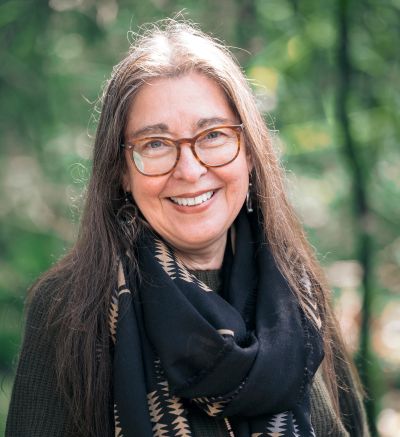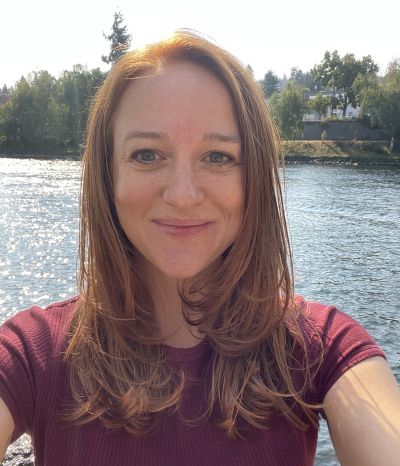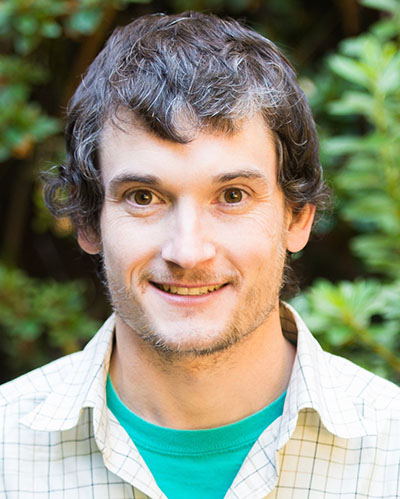
Cristina Eisenberg
Dr. Cristina Eisenberg is the Associate Dean for Inclusive Excellence and Director of Tribal Initiatives at Oregon State University in the College of Forestry (CoF) and Professor of Practice. In the CoF she is the director of the Traditional Ecological Knowledge (TEK) Lab, and the Indigenous Natural Resource Office. As a Native American and Latinx ecologist, she leads several long-term ecological restoration projects, including the BLM /OSU/Fort Belknap Grassland Restoration Project in Montana, and the Pacific Northwest Tribal Conservation Corps Pilot Project for Seeds of Success, which involves working with five of the Tribal Nations in Oregon. All the projects she leads incorporate Indigenous Knowledge (IK) and best Western science into ecocultural restoration practice. She works with the White House Office of Science and Technology Policy, the US Forest Service, the US Congress, and the Bureau of Land Management to advise them on IK and Tribal Sovereignty and how to partner with Tribal Nations. Cristina is a Director at Large on the Society for Ecological Restoration (SER) Board of Directors. She leads the SER TEK Working Group and is the author of numerous books, journal articles, and book chapters.
Natalie Bursztyn
Dr. Natalie Bursztyn is a Lecturer in the Department of Geosciences at the University of Montana - Missoula. In her 20+ years of teaching post-secondary, she have taught at the community college level, education centric public universities, R1 universities, and private liberal-arts colleges. Natalie primarily in the Earth System Sciences, and has developed curriculum and pedagogy at all levels. Within the geosciences her academic backgrounds are in mineral and energy exploration and fluvial geomorphology, however, her passion is in geoscience education. Natalie’s publications and research activities in geoscience education have examined making the geosciences more accessible and inclusive. She uses modern technology (including augmented and virtual reality) to enhance an “old-school” science, and bridge gaps in public understanding of Earth systems through public talks, hikes, animations, and knitted geology. As a faculty member at UM Natalie hopes to bring to life a new vision of how to teach undergraduate students Earth Systems Science.

Barbara Spiecker
Dr. Barbara Spiecker (she, her, hers) is a deaf marine ecologist at the University of New Hampshire who uses mathematical and statistical tools, coupled with experiments and field observations, to answer questions related to responses of marine communities to climate change and monitoring and management of marine habitats. More specifically, (1) identifying underlying mechanisms that produce complex multi-scale responses of benthic communities and how these mechanisms and responses affect ecosystem-level processes from the bottom up and (2) using data from long-term monitoring programs to address pressing ecological issues, identify biological patterns across ecosystems, and provide practical solutions to common data-related issues surrounding these programs.
She co-founded a non-profit, Atomic Hands, that focuses on making science, technology, engineering, and mathematics (STEM) engaging through American Sign Language (ASL). We create videos covering varying STEM topics, give presentations and training nationally and internationally on how to deliver STEM topics in ASL, and offer ASL-English translation services for anything STEM related. Barbara has also worked with state- and nationally-funded projects on developing STEM signs in ASL and state education departments to translate English-based standardized tests in ASL. She has a Ph.D. in Integrative Biology from Oregon State University, an M.S. in Marine Biology from Northeastern University, and a B.S. in Biology from Rochester Institute of Technology.

Nathan Kirk
Dr. Nathan Kirk (he, him, his) is a molecular ecologist, who specializes in marine symbioses including those involving corals and anemones. He also studies how group work and CURES can improve student performance and sense of belonging in biology classes. He partners with students in these classes to help us understand demographic patterns in sea anemones. He teaches several upper division marine biology courses and introductory biology at Oregon State University.